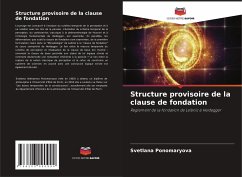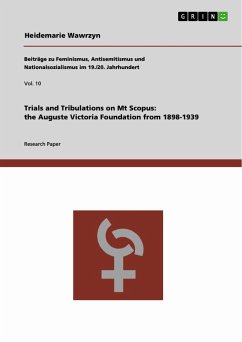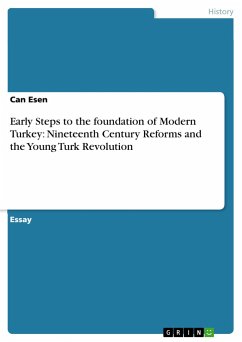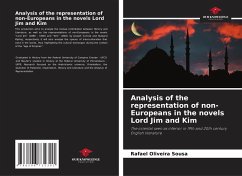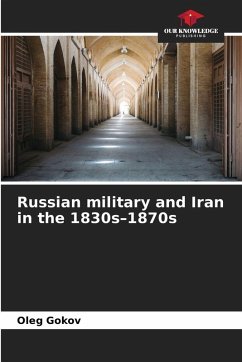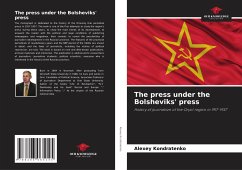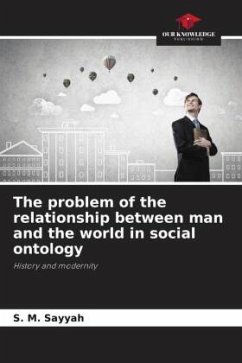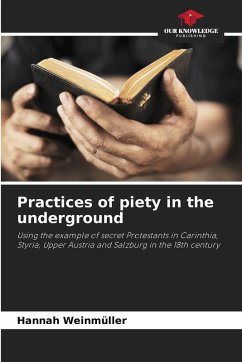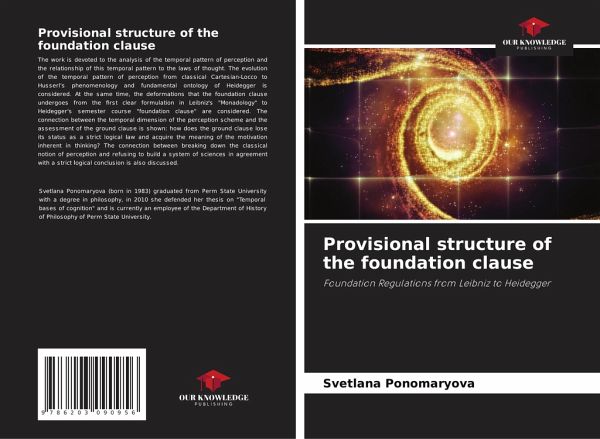
Provisional structure of the foundation clause
Foundation Regulations from Leibniz to Heidegger
Versandkostenfrei!
Versandfertig in 6-10 Tagen
32,99 €
inkl. MwSt.

PAYBACK Punkte
16 °P sammeln!
The work is devoted to the analysis of the temporal pattern of perception and the relationship of this temporal pattern to the laws of thought. The evolution of the temporal pattern of perception from classical Cartesian-Locco to Husserl's phenomenology and fundamental ontology of Heidegger is considered. At the same time, the deformations that the foundation clause undergoes from the first clear formulation in Leibniz's "Monadology" to Heidegger's semester course "foundation clause" are considered. The connection between the temporal dimension of the perception scheme and the assessment of th...
The work is devoted to the analysis of the temporal pattern of perception and the relationship of this temporal pattern to the laws of thought. The evolution of the temporal pattern of perception from classical Cartesian-Locco to Husserl's phenomenology and fundamental ontology of Heidegger is considered. At the same time, the deformations that the foundation clause undergoes from the first clear formulation in Leibniz's "Monadology" to Heidegger's semester course "foundation clause" are considered. The connection between the temporal dimension of the perception scheme and the assessment of the ground clause is shown: how does the ground clause lose its status as a strict logical law and acquire the meaning of the motivation inherent in thinking? The connection between breaking down the classical notion of perception and refusing to build a system of sciences in agreement with a strict logical conclusion is also discussed.



